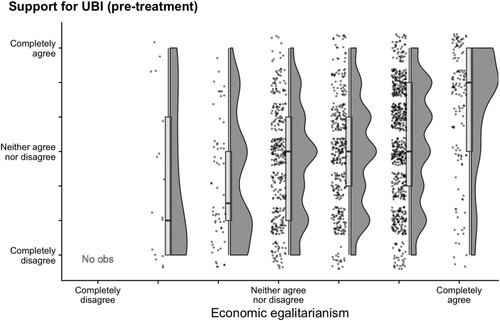Figures & data
Table 1. Items used for measuring the moderator variables economic egalitarianism, welfare chauvinism and institutional trust, including the wording of the statements. The statements have been translated from Dutch.
Table 2. Descriptive statistics.
Table 3. OLS regression estimates for support for a UBI on key variables.
Table 4. OLS regression estimates for support for a UBI.
Figure 1. Support for a UBI (pre-treatment) over economic egalitarianism (n = 1,630). Half density distribution and boxplot distribution. The dots signify individual scores. Note: The scores for the lowest economic egalitarianism category ('completely disagree') are not shown, as there were no respondents who completely disagreed with all four of the economic egalitarianism items. The horizontal axis reflects the rounded mean scores of the four items.

Table 5. Reverse placebo tests: OLS regression estimates on different, but related, dependent variables (based on non-missing observations on the dependent variable, pretreatment control variable and moderator variables).
